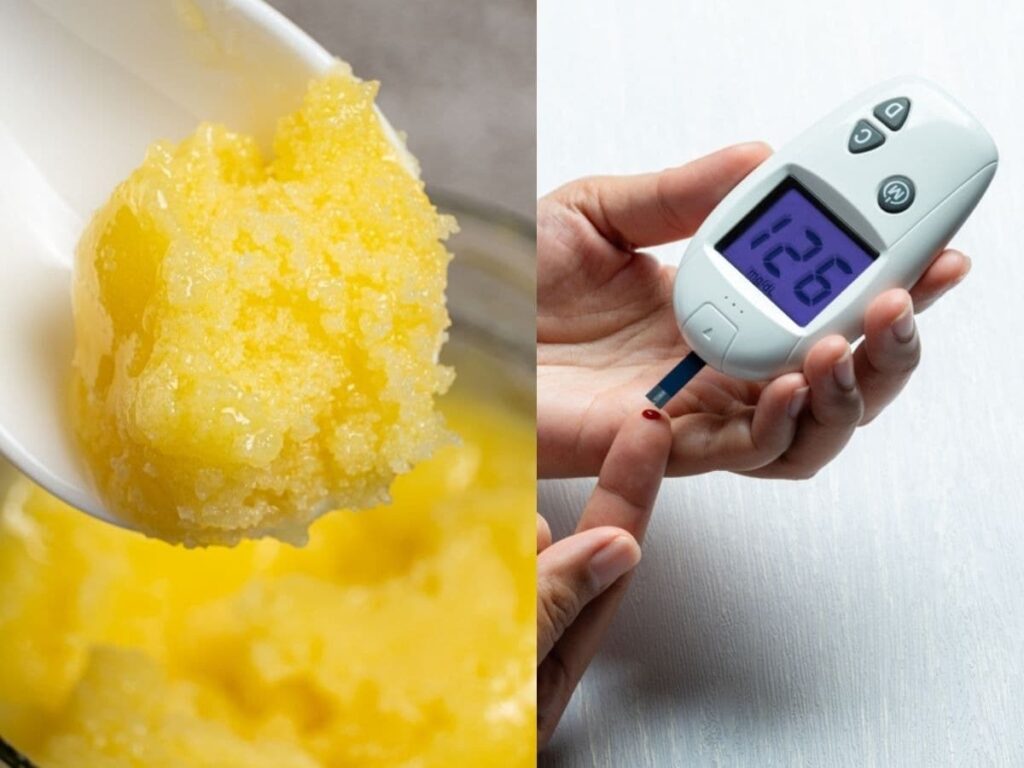Ghee, a clarified form of butter traditionally used in Indian cuisine, not only enhances the flavor of dishes but also carries a range of health benefits. However, for individuals with diabetes, it’s crucial to understand whether incorporating ghee into their diet is beneficial or detrimental. This article delves into the nutritional aspects of ghee, its effects on diabetes, and recommendations for consumption.
What is Ghee?
Ghee is made by simmering butter to remove its water content and milk solids, resulting in a golden, aromatic fat that is rich in flavor. It is a staple in Indian cooking and is celebrated for its high smoke point and rich nutrient profile.
Nutritional Profile of Ghee
| Nutrient | Amount per 100g |
|---|---|
| Calories | 900 |
| Fat | 99g |
| Saturated Fat | 62g |
| Vitamin A | 850µg |
| Vitamin E | 2.2mg |
| Butyric Acid | 3-4g |
Ghee and Diabetes Management
Diabetes is a condition characterized by high blood sugar levels. Managing this condition involves careful dietary choices, especially regarding fats.
Here are several reasons ghee can be a suitable option for diabetes patients:
1. Low Glycemic Index
Ghee has a low glycemic index, meaning it does not cause spikes in blood sugar levels when consumed in moderation. This makes it a safer fat option compared to many processed oils and fats.
2. Rich in Healthy Fats
Ghee contains medium-chain fatty acids that can aid in energy production without significantly affecting blood sugar levels. These healthy fats may also support overall heart health.
3. Supports Metabolism
The presence of butyric acid in ghee promotes a healthy gut, which is essential for optimal metabolism. A balanced metabolism can help in better blood sugar management.
4. Anti-inflammatory Properties
Chronic inflammation is a concern for diabetics. Ghee’s anti-inflammatory properties may help alleviate inflammation, thus aiding in overall health improvement.
How to Incorporate Ghee into a Diabetic Diet
While ghee has potential benefits, moderation is key. Here are some tips on how to include ghee in your diet:
- Use ghee for sautéing vegetables instead of refined oils.
- Incorporate ghee into whole-grain dishes such as brown rice or quinoa.
- Limit your serving size to about one teaspoon to control calorie intake.
- Combine ghee with spices like turmeric and cumin to enhance its health benefits.
Conclusion
In conclusion, ghee can be a flavorful and healthy addition to the diet of individuals with diabetes when used in moderation. Its nutritional properties can support better blood sugar management and overall health. As always, it is advisable for diabetics to consult with a healthcare provider or nutritionist to tailor dietary choices to their specific needs.
